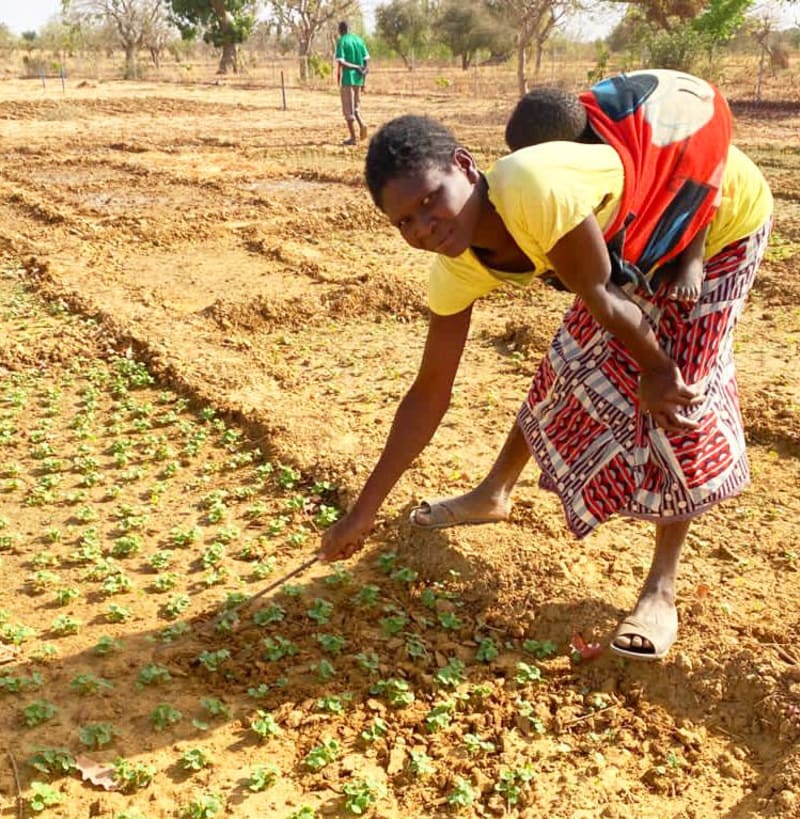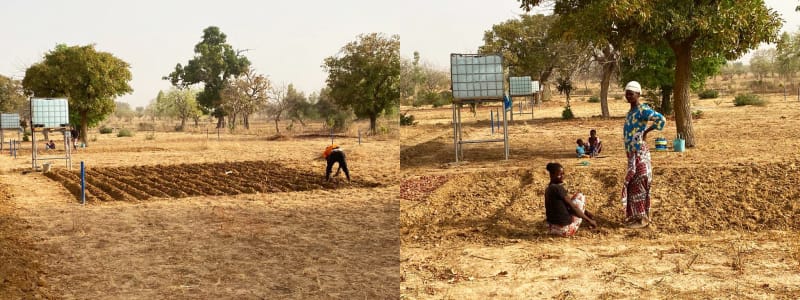
Even this dry soil will improve people lives – with new knowledge
The light Sahara sand dust creates a haze almost blocking the early morning sun. It is already approaching 40 degrees when Susanne, Jari and Noël arrive at their plots and start working the soil, adding another cloud of fine gravel to the air.
Susanne has come from a neighbouring village with her two children, who play peacefully in the shade of a shea tree. She is focusing on a common local variety of hibiscus which produces leaves and flowers for cooking.
The first haricots vert are just about to split the dry surface at Jari’s plot.
While Noël is busy hacking the ground for the planting of new seeds.
The so called Mossi plateau in central Burkina Faso has always been occupied by farmers. Old traditions and methods have sustained over many generations, the crops of hirs and sorghum are deeply entrenched as the obvious staple food.
The idea of a more varied agriculture is radical. Introducing vegetables instead of grains inevitably will be met with some suspicion. Therefore, young farmers like Susanne, Jari and Noël have a crucial role when convincing the area how new ideas substantially will improve living conditions.
Nöel is really setting the example. Firstly, he purchases fruits from markets in the region and distributes to the 400 children in Nakamtenga. Secondly, he has been trained in more modern agriculture including how to make your own biological fertilizers and herbicides.
His own plot also serves as a training ground for others. During the last four days, Noël has finalised a first session with local growers in the art of turning pepper, garlic, alcohol and water into a brew which does not kill insects but drives them away. From cow dung, ash, chopped straw and kitchen compost, he has taught how to make an efficient fertilizer.
But it is a fight against the tide. Traditional one-sided farming has leached the soil and in order to face also climate chance, it is essential to secure a so-called microclimate which can carry the process. A versatile farming will not only boost nutrition but also generate income and encourage the young generation to stay and make a good life in the area.
This is not a quick fix. But we do see a positive change, new attitudes, confidence and belief in the future.
MAX Burger, through their foundation ”Rättvis Fördelning”, has been instrumental in creating the much needed preconditions for an ongoing first two year project period. Now we – and the dedicated local staff in Nakamtenga – are just about to venture into the second phase.
We know we can build a sound agricultural base also in the middle of the Sahel.
You should join! If ever supporting a programme in Africa is rewarding, this is it.
